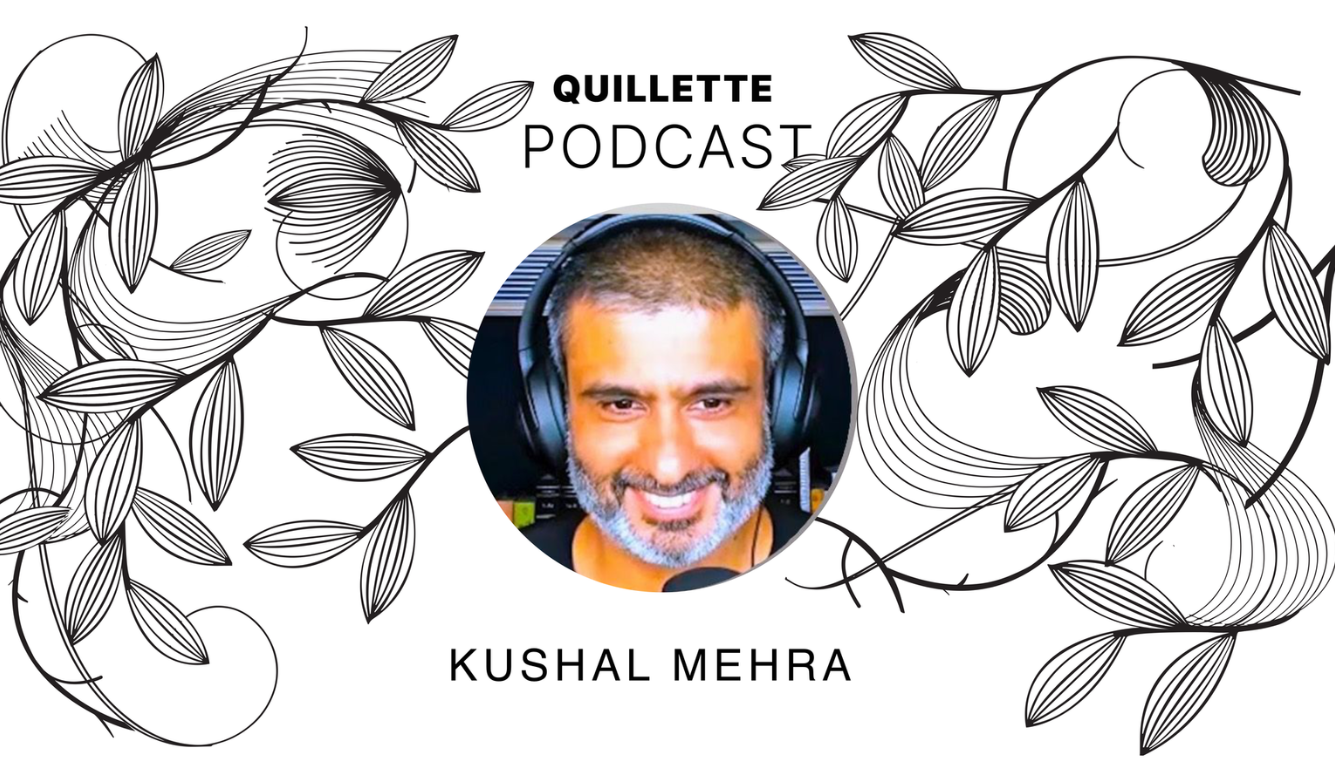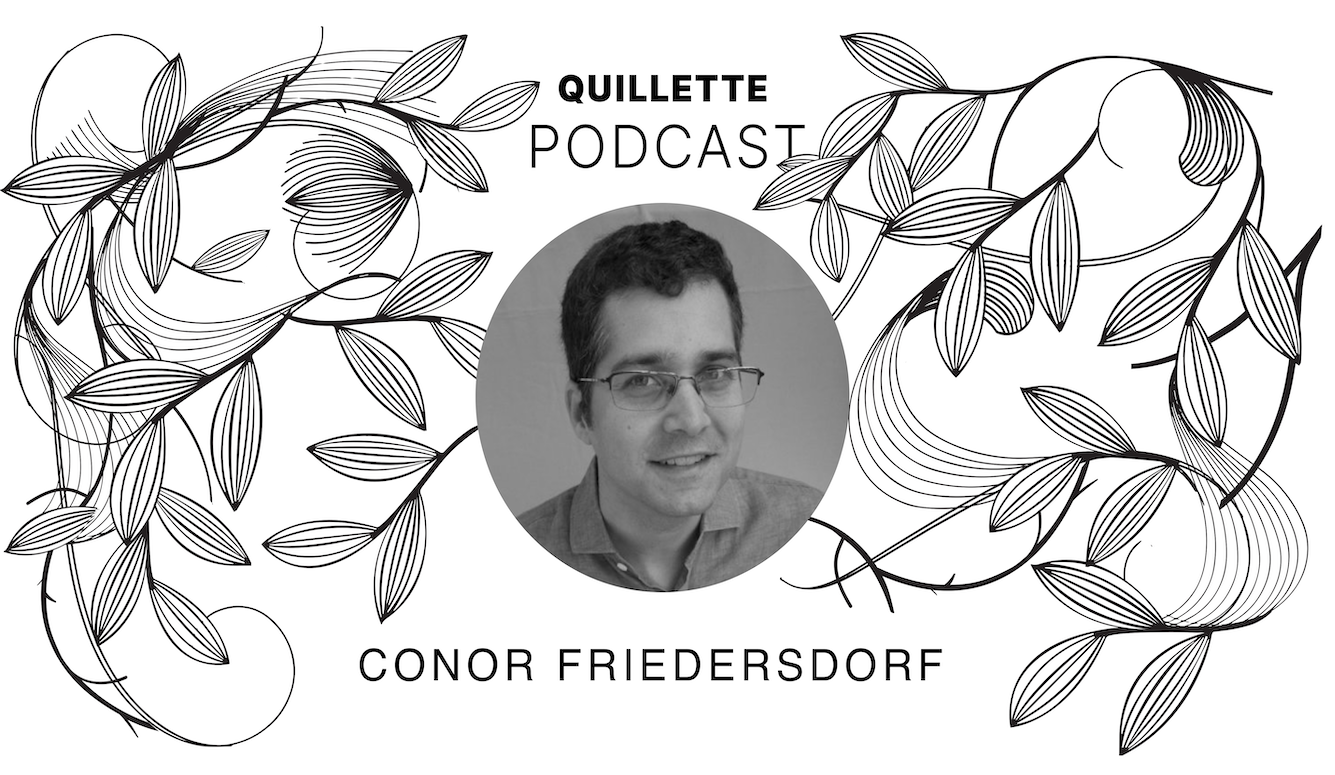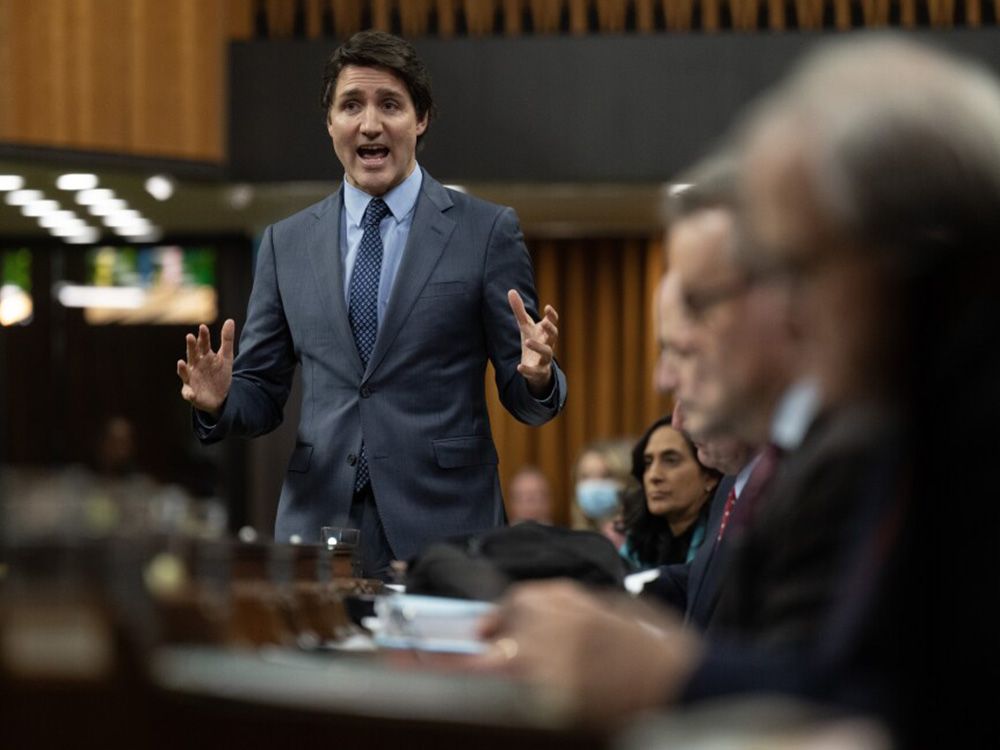Podcast
Podcast #243: The Freedom to Blaspheme
Jonathan Kay speaks to fellow podcast host Kushal Mehra about the ‘eerie similarities’ between censorship campaigns in India and Canada.

Welcome to the Quillette podcast. Today’s guest is… me. And by this, I don’t mean that I’ll be interviewing myself, as scintillating a prospect as that may be to a very tiny minority of you.
Rather, what you’ll be listening to is me being interviewed by Indian-Canadian podcaster and author Kushal Mehra for his Cārvāka Podcast. It was a fun conversation and, with my friend Kushal’s approval, I’ve produced an edited version for Quillette listeners, seeing as how we talked about a lot of Quillette-type topics.

Specially, we spoke about the threat to free speech in Canada, India, and the wider world more generally. On the Canadian front, Kushal wanted to talk about Justin Trudeau’s Online Harms Act, also known as Bill C-63, which, if passed into law, would impose an array of unsettling limitations on Canadian speech rights. Many critics have called the law unconstitutional, and worry that it will be selectively applied against political heretics who blaspheme against the quasi-sacred dogmas of social justice. As you’ll hear, Kushal sees unsettling parallels with Indian censorship laws—especially Section 295A of the Indian Penal Code—which outlaw more traditional forms of blasphemy.
Kushal Mehra: Please explain what Canada’s Online Harms Act is…
JK: There are actually some things in it that maybe a lot of people would find sensible… I’m sure a lot of countries do this where they take a lot of different kinds of legislation and they lump it into one bill to make it more difficult for their political opponents to vote against it—because then they could say “Aha, you’re an opponent of our sunshine and apple pie provisions.” And then the opposition has to say, “No, we love those provisions. What we hate is this other thing.” And that’s what Justin Trudeau’s Liberals have done.
So there are provisions in this bill that increase the severity of penalties against child porn and all sorts of online material that we all agree is [high] risk. And then on top of that, they added some completely outrageous stuff, for instance letting human-rights tribunals and government officials essentially muzzle people even before they have spoken, and saying, “We believe that you were about to say hate speech,” so they can be dragged in front of a tribunal, and [get ordered to wear] ankle bracelets and tracking devices. Also, for some reason the law says that [a judge can order you not to use] drugs or alcohol during this period.
Essentially, it’s an injunction preventing people from opening their mouths. If somebody comes forward and says, “I fear that this or that person is going to say something hateful…” And then there’s also an increase in the criminal penalties for hate speech. Canada already has a law against hate speech, but it’s very rarely applied and the standard is quite high.
It’s Section 319 of our Criminal Code, and it’s been on the books for decades. I think maybe it’s been [applied] maybe half a dozen times, and usually it’s against people who say stuff that’s really horrendous—promoting the killing of minorities and stuff like that, However, this Online Harms Act would extend that, insofar as you can now get life in prison for [a wide variety of hate speech]. And it looks like hate speech might be more broadly defined than in the past.
Under this bill, should it become law, saying something [deemed hateful] could land you in jail for the rest of your life. Which, as a lot of people have noted, is pretty crazy because typically [even] murderers and rapists in Canada don’t go to jail for the rest of their life.
KM: And under the interpretation and application, it says:
Content that foments hatred means content that expresses detestation or vilification of an individual or group of individuals on the basis of a prohibited ground of discrimination within the meaning of the Canadian Human Rights Act, and that given the context in which it is communicated is likely to foment a detestation or vilification of an individual or group of individuals on the basis of such prohibited ground.
Now, let me connect this with something that has recently been passed by the TDSB [Toronto District School Board] around Palestine, and a lot of Jewish groups were protesting against this—where basically they have now created a subcategory, which is called anti-Palestinian hatred.

They keep creating these imaginary [protected] groups…
JK: So you mentioned the TDSB. And as this example shows, you’re making policy on the basis of what’s fashionable. So if it’s politically fashionable to support a certain geopolitical cause, then you say, “We’re going to carve out this special provision that says you can’t say bad things about Palestinians.”
One thing I always try and emphasise when I have this conversation is that when you create policies and laws like this, you’re creating a tool that your political opponents can use. For instance, in Canada, as in other places, you’ve got people who are Palestinian supporters, and they shout things like “From the river to the sea.” The meaning of that is contested. A lot of people, including a lot of Jewish people, would say what you’re advocating is a Jewish-free region where all the Jews have either been killed or expelled from the area that is now Israel.
A lot of people interpret that as a kind of genocidal hate speech. And I try and tell people, including my progressive friends, if a law like this passes, [remember that] Justin Trudeau is not going to be in power forever. And maybe a year or two years from now, there’s going to be a Conservative government and there’s going to be a Conservative attorney general, because under this Online Harms Act, the Attorney General has a lot of power to determine what kind of prosecutions or cases go forward.
And do you really want a government that is prosecuting Palestinian-rights activists for what Zionists interpret as genocidal hate speech? So some 19-year-old undergraduate student gets up on a soapbox and says “From the river to the sea.” And do you want the government to have the power to take that person and throw them in jail for the rest of their life, which is literally what this law would theoretically mandate?
Sometimes, the people who put in place these policies and laws, there’s a kind of fantasy that their side will be in power forever. And they like the idea that they can just shut up their opponents and threaten them with jail. But I try and remind them: extend your event horizon beyond the next 20 minutes. Think about how this law will be applied in a year, or two years, or five years. Never give the government powers that you would not want the enemy to have.
KM: I couldn’t agree more with you… You know, I am famous or infamous, I don’t know [which], for being an absolutist when it comes to free speech in India.
And what I see in Canada… I see all the patterns of Indian laws—or Indian-[type] laws when it comes to speech creeping into Canada.
And all these laws have been on the statute books in India for a while. For example, there is something which is called 153A. Section 153A basically [bans], and I want to read this for you,
the act of promoting enmity between different groups on grounds of religion, race, place of birth, residence, language, caste, community or any other group;
acts prejudicial to the maintenance of harmony between different groups or castes or communities, if the acts disturb public tranquillity; and
acts causing fear or alarm or a feeling of insecurity among members of any religious, racial, language or regional group or caste or community by use of criminal force or violence against them.
Do you see the similarities, the eerie similarities between [this and the Online Harms Act]?
JK: I think the Indian one is worse. The words that jumped out at me were harmony, tranquillity, and insecurity.
KM: Yeah. How do you define that?
JK: Also, is there a single person in either India or Canada who would say to somebody who was doing a survey, who asks “Would you say that you exist in a state of harmony and tranquillity without any insecurity whatsoever about your opponents…?” Like, what percentage of people would even answer yes to that question, especially in the age of the internet? A lack of harmony and a lack of tranquillity and an existence of collective insecurity among different groups is par for the course. Like when you open up Twitter or Facebook or whatnot, the algorithms are calculated to show you things that make you feel insecure and disturb your “tranquillity” or “harmony.”
Look, maybe there’s 17 gurus living without the internet who exist in a state of harmony and tranquillity. But for the majority of people, that’s not the case. So any government could say, “The populace is existing in a state that lacks harmony and lacks tranquillity. Fortunately, we have a law…”
Of course, these things are always applied selectively. And no one listening to this is going to get a gold star for figuring out which groups [are likely to] disturb the “harmony” and “tranquillity” in, [Narendra] Modi’s India or in Justin Trudeau’s Canada or in Donald Trump’s America in November.

That said, the language [in the Online Harms Act] is curated to appeal to parents. What parent of, say, a 10-year-old or a 12-year-old isn’t concerned about their kid having an unsafe experience with a stranger on the internet—identity theft, phishing, scams, revenge porn… there’s all kinds of terrible things out there. Online harms do exist.
I think we all agree that these are problems to take seriously. But it’s quite another thing to then give the government powers with an incredibly vague law that allows the government to throw people in jail for the rest of their life for chanting things like “From the river to the sea.”
I have a huge problem with that, and I absolutely don’t trust Justin Trudeau or Pierre Poilievre, the Conservative Party leader who may well take over as prime minister soon. I don’t trust either of those two to make determinations about what kind of political speech would produce “online harms” for 40 million Canadians.
KM: There is a blasphemy law in India called 295A. You can’t say [negative] things about religion. Religion is protected. And the way things are going in Canada…
JK: I have some sympathy for governments in a place like India or Pakistan or whatnot that have these laws, because you sometimes see, in small towns or regional capitals, where some person is accused of burning the Quran or desecrating the Quran in some way. And there’s a riot and people get killed. And so the government—not necessarily theocrats—they want to protect the Quran [simply] because they don’t want to have to deal with public riots every couple of months.
I love history. And if you look at the history of early 16th-century England, there were all these proto-Protestants, evangelicals, Lutherans—people who were challenging Catholic doctrines. And the government started prosecuting these people viciously. In some cases, literally burning them at the stake. And if you look at the logic of the government, it’s not that the government was run by crazy Catholic theocrats, but [rather] the government wanted a system where there was public order, and they saw religious pluralism as a threat to public order. They wanted priests on Sunday to deliver one message. They wanted it to be a message of compliance with what the government said was the one true faith. And to be fair, the situation in 16th-century England was maybe a little bit like the situation in 21st-century Pakistani villages, where some random guy could start preaching something that people find weird, and there’d be a riot.
It’s like those “official” state-recognised religious bodies you see in communist countries, right? China did this for a while, where there was a church, but it was a state-recognised church. So the Chinese were like, okay, you can believe in Christianity, but it has to be the official Chinese-sanctioned version of Christianity. And the Russians do this with Orthodox Christianity. So it’s not necessarily a theocratic impulse. It’s basically an autocratic authoritarian impulse that says you’re not allowed to do [anything] outside the official system.
KM: So what is the history of 295A in India? In the early 1920s, there was a Muslim who wrote a book against [the Hindu goddess] Sita. In response, the Hindu side wrote a book about Muhammad. The Muslims murdered the Hindu who wrote the book. But the Hindus didn’t do anything. That led to riots because the Hindus then responded to the Muslim attack… then the British were like, “We don’t want to deal with this. Let’s bring in this law.”
So 295a is a British law. But then nobody in the Indian state wanted to remove it. Now they had a tool to control these people.
I once used this law to make a mockery out of it. Somebody made a random comment about a Jain guru. I went to the police station. I said, “My feelings are hurt.” They’re like, “Are you a believer [in Jainism]”? I was like, “No, I’m an atheist.” And they’re like, “Hang on… how can your feelings be hurt?” I was like, “Give me the legal reason why I can’t file a complaint.” Guess what? They had to file a complaint. And I was mocking the law all the time.
JK: The Canadian human rights system is similar. There was a widely disliked and properly revoked section of the Canadian Human Rights Act. I think it was Section 13, which was essentially a censorship provision.

But as with many areas of human rights law, you wouldn’t have to show personal injury to bring an action with section 13. What you just said, that scenario would be taken seriously by a human rights tribunal. And there were several instances of people actually being paid damages. You would get maybe $10,000 or $20,000. Essentially, you’re like a human-rights bounty hunter, where you’re getting cash for taking the time to fill out a three-page human rights complaint.
Justin Trudeau is essentially trying to bring back that section of the Human Rights Act. And by the way, the reason they got rid of this section is because half of the complaints were being brought forward by one guy.
So what you did as a prank was financially incentivised under the Human Rights Act provision that the previous Prime Minister, Stephen Harper, got rid of. And now Justin Trudeau, in his political desperation, is trying to bring it back.
KM: Yeah. It’s very interesting. This bill says it is a discriminatory practice to communicate or cause to be communicated hate speech by means of the internet or any other means of telecommunication in a context in which the hate speech is likely to foment detestation or vilification of an individual or group of individuals…
JK: If I say, “We have biological sexes. There’s male and there’s female…” If I say that, there are a not insignificant number of Canadian academics and activists who regard what I just said as a form of hate speech.
Because I have “erased” the identities of people who claim to have no biological sex or claim to be gender fluid in some way that utterly destroys the concept of sexual dimorphism. There are people, again, who see “from the river to the sea” as hate speech. There are people who see Zionism as hate speech. There are people who see Hindu nationalism as hate speech. So this can be read very selectively.
And by the way, one thing we haven’t talked about yet: the Online Harms Act goes well beyond this, because one of the provisions threatens people with the possibility of life imprisonment if, in committing a breach of any other act of parliament, they are motivated by hate. It doesn’t have to be a criminal act. It could be you used a provincial or national park in an improper way, or you filed your tax return in the wrong way or something like that… In theory, you could go to jail for life.
I should say, though, that the human rights stuff and the other backdoor provisions in the bill actually worry me more [than the criminal law provisions] because human rights tribunals are not governed by the same high constitutional standards of beyond-a-reasonable-doubt that criminal law is governed by. So it’s very easy to harass someone, even if these human rights complaints don’t go anywhere.
Under Canadian human rights law, the complainant typically doesn’t have to get a lawyer. So the complainant just files some form online and says, “Oh, yeah, this guy’s a hatemonger.” And then often the person who’s the alleged wrongdoer, they often have to get a lawyer. So even if they are ultimately judged to be innocent, they still might be out of pocket for $50,000 because they hired a lawyer to defend themselves against these spurious charges.
My fear is that the next prime minister will simply take this illiberal [law] and use it for his own ends. However, I’m optimistic enough to say that the next prime minister may be more principled, and he’ll return Canada to a more classically liberal understanding about what you’re allowed to say and do.
KM: I want to warn Canadians that the trajectory of something like the Online Harms Act Is going to be actual blasphemy laws in Canada…
JK: I’m not sure about that. In my experience as a Canadian, the kind of people who come to Canada—Muslim, Hindu… Many of them hate [religious fundamentalism] because they were disgusted by the idea of living under a theocracy [in their home country].
And so I’m a little bit more optimistic than you. When I’m online, some of the people who are my most strenuous defenders when I’m defending free speech…they’re often not people who were born in Canada. In many cases, these are people who were born in communist countries or in Islamist-run countries or China or people who come from countries where you can’t say what you think.
And that fills me with hope, right? You hear people say, “I came from a country where you had to spout government propaganda if you were going to be considered a good citizen”… To be be a “good” Iranian, you had to say “death to Israel,” and you had to say “Long live the Ayatollah,” and stuff like that. And they don’t want to live in a country like that.
Whereas, it’s often the white Canadians [born in Canada], they’re often the ones who pick up the religion of social justice, and they’re the ones who are policing everybody’s thoughts, and ideas, and speech the most aggressively.
KM: My next book is literally going to be called “Blasphemy.” I will literally explain why as a Hindu, I believe blasphemy should be legal and allowed in every single country on planet Earth.
JK: Um, what’s your security budget for your book tour in India…?
KM: Yeah, a lot of people have told me, “Why are you doing this!?” But I just can’t help it. I have to make the intellectual case for blasphemy…
JK: Hey, you could become a refugee here in Canada. And I don’t know, maybe you’ll have to stay at my place or something like that.
KM: But they might come after me over here, too…
JK: Oh, then I’m rescinding my invitation. I don’t want to get involved in that!
KM: But before we wrap up, I will say that I truly believe there is hope. The state was never supposed to be my mom and dad. The state was supposed to be, at best, a helper, not a mom and dad. This is when the state tries to parent you.
JK: So that’s one aspect of this. But I’m a little bit of a technological determinist—in the sense that I think a lot of these things emerge from technology.
And the internet has allowed people to exist [in silos], with the expectation that everybody around them will agree with them, and that if somebody disagrees with them, the universe is out of whack and you need a law to correct the universe.
So when I was a kid, if you were on a university campus or a similar marketplace of ideas, you just took it for granted that you’d be surrounded by people who agreed with you, and also by people who didn’t agree with you. People had to learn to get along a little bit—often unsuccessfully, but at least they had the expectation that in the course of their daily intellectual life, they were going to have to deal with people they disagreed with. And they couldn’t solve that problem by just accusing everyone who disagreed with them of being hate criminals. Because then they’d accuse 17 different people per day of being hate criminals.
And so I think a lot of it is now people spend a ton of time in Twitter silos, Facebook channels, where they have developed the implicit expectation that if somebody disagrees with them, it’s a weird thing, it’s unusual.
And yeah, it’s the nanny state. But that nanny state to some extent has emerged because politicians aren’t stupid. They’re like, “Hey, there’s this whole generation of kids and 20-somethings and 30-somethings who have grown accustomed to the belief that the universe isn’t in its proper state if some rando disagrees with them. And so we have to have a law against that rando.” Politicians are responding to the technological change.
I think human beings are still trying to figure out how are we going to live in that world. And how are we going to break down those silos, and try and convince people, “Hey, just because in your Twitter silo, everyone believes the same thing, it doesn’t mean you live in a country where everyone believes the same thing.” That to me is the challenge that principled politicians have to face.
KM: Yeah, I actually agree with you. When I look at a video of a fire somewhere in India, the algorithm will go on showing me videos of fires everywhere in the world, based on my search location. And so my reality, if I go online, is that the whole world is burning, but actually it’s not.
JK: Another example is Shark Week. I think it’s on the Discovery Channel. When Shark Week started, people were terrified that they’d jump into a river or a freshwater lake and get attacked by a shark—because they were just watching Shark Week all the time. There’s a psychological term for this. I think it’s called the availability heuristic—where if information is available to you, and fear and anxiety are available to you, that just dominates your thinking.
So, it’s the same with hate. In Canada, the progressive hothouse has convinced itself that neo-Nazis are around every corner. There’s this tiny group called “Diagolon,” which is like, seven people who run a podcast, and progressives are convinced that the diagolonians are going to take over Canada. That’s their Shark Week. They think that there’s going to be this diagalonian Nazi revolution. And unfortunately, this seeps its way into mainstream left-of-centre politics, and so we get things like the Online Harms Act.
KM: I want to ask you a question from a live viewer: Is it fair to say that diverse societies that are not fully socially cohesive will tilt towards draconianism? Is national cohesiveness a non-negotiable [element] for free speech?
JK: A lot of it has to do with whether our politicians feel like they can gain more points by exacerbating tensions or by bridging them.
And I think, Canada is at this inflection point... Trudeau’s political memoir was called Common Ground. He came into power—this was almost a decade ago—explicitly on the idea that he was going to bridge [the country’s] differences.
And, by the way, back in those days, that primarily meant bridging separatist differences in Quebec because he’s like me, he’s from Quebec And so his big political challenge was overcoming Quebec political separatist sentiment, because he and his father Pierre famously were federalists.
They wanted to keep Canada together. So “common ground” was French, English, Catholic, Protestant, whatever, we’re one people… But then, during a very short historical period, during the course of his tenure as prime minister, the narrative flipped. To be an enlightened Canadian in some circles now consists of rejecting the idea of common ground. There’s Us, we’re enlightened people. And then there’s all those mouth-breathing conservatives who believe in all kinds of crazy things. And they probably like Donald Trump and they want Donald Trump to be the prime minister of Canada and they’re anti-vaxxers and so forth.
The practical question is, how do we create a politics where mainstream politicians are not incentivised to exacerbate the worst instincts that we now have, to separate into political tribes.
KM: Before we go, is there anything else in the law specifically that you think we did not cover?
JK: Once this law, if it ever comes to pass, if it is a law, the courts will probably deem it unconstitutional. So I don’t want people to panic and say, “Oh, my God, Canada has become a police state and I have to take down all my social media posts.” I don’t want to be dystopian. You can still largely say what you want in Canada. So if you are Canadian, use your free speech power to oppose this law.







